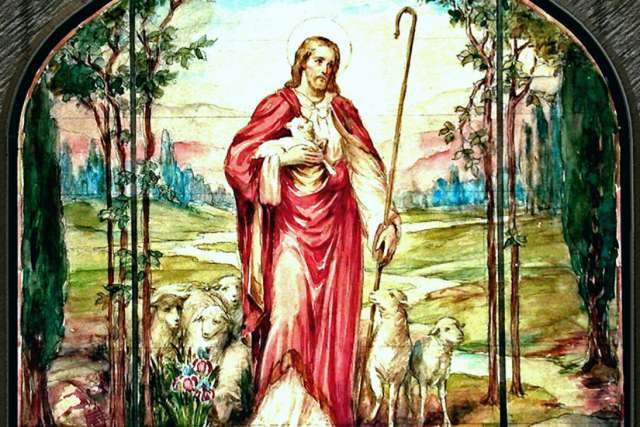Jeremiah takes aim at the kings of Israel, most of whom had long departed from the path of God. They had been guilty of corruption, injustice and idolatry, and had led the nation astray. The scattering of the flock was viewed as the most grievous of sins. Jeremiah warned that the day of reckoning would come and unworthy shepherds would pay. God’s patience had worn thin. But he also held out hope, for God would personally gather together the scattered flock to guide and protect them. God is the one shepherd that can be counted on,. They would live without fear and they would flourish. God would also raise up a descendant of King David and he would govern the land justly and with righteousness.
In the New Testament, the “good shepherd” is the one willing to go in search of the one lost and struggling member of the flock. The prize passage, however, is the tenth chapter of the Gospel of John. Jesus explicitly called Himself the Good Shepherd, calling to mind God’s role in the Old Testament. He also contrasted Himself as the Good Shepherd with the bad ones that were just concerned with themselves. Jesus would gather the flock, protecting it from all danger and allowing it to flourish. In turbulent times it helps to remember that if we put our complete faith in human beings and hand over our freedom to people, systems and ideologies, we are bound to be hurt and disappointed. If we allow Jesus to be our personal shepherd, we are in perfect hands.
The gathering together of God’s scattered souls is evident in the work of Jesus explained in Ephesians. Things that separate and exclude are not part of God’s plan. The blood of the Cross seeks to abolish these things, bringing all human beings together as God’s people, for there is but one God and one Spirit. This law of unity needs to be continually brought to mind, for it goes against the grain of human psychology that is based so much on fear and division.
Jesus and His exhausted apostles did not ask for much, just a little “down time” to rest and refresh themselves. Word had gotten around and they were continually swamped by desperate and hopeful people. But it was not to be! The crowds got to their quiet spot first. We can imagine the dismay and sinking feeling as Jesus and the apostles stepped off the boat and saw that their work was waiting for them. Compassion dictated their response, as it always should. Ever the Good Shepherd, Jesus was moved by their desperation and need and gave of Himself. Recognizing that no one was exercising real leadership or care for the flock, He took the time and energy to teach them at length.
In our own time, we cannot afford the luxury of isolation or talking only among ourselves. The world’s needs demand that we be a Church active and engaged, especially with ordinary people. Pope Francis calls for shepherds to “smell like the sheep,” Leaders have to walk with and among people. The same applies to all Christians who take seriously their role as disciples. Compassion and mercy make a fine moral and spiritual compass for responding to the world’s challenges and governing our interactions with others.


